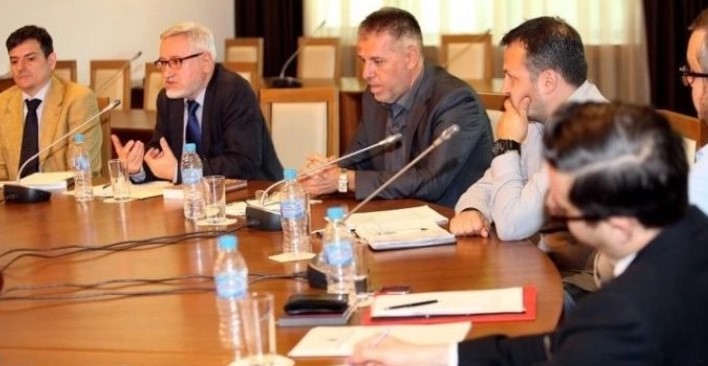The historical commission between Macedonia and Bulgaria is expected to be reorganized, after the new Macedonian Government openly expressed dissatisfaction with the line-up on the Macedonian side. Dragi Gjorgjiev, the co-chair of the commission, confirmed today that he expects to be removed from the position in which he made a number of major concessions to Bulgaria which were broadly rejected in the Macedonian public.
Prime Minister Hristijan Mickoski said that the topic of specific appointments to the commission has not been raised yet at the Government level, but said that he expects it to be done so in the near future.
I have spoken about Mr. Gjorgjiev numerous times in the past. Unfortunately he compromised himself, as he was prostrating himself in front of the ministers and the prime ministers instead of minding his own business. But that was the choice he made, Mickoski said.
The commission, appointed by the two foreign ministries and including an equal number of historians from both sides, is supposed to work on the principle of parity and should discuss various historic issues and try to create a shared historical narrative between the two countries. But from the start it was clear that Bulgaria has the upper hand, as it blocks Macedonia from opening EU accession talks, and the Macedonian Government under SDSM and DUI often eager to accomodate Bulgarian demands. At times the key position of Foreign Minister was held by DUI appointed ethnic Albanian official Bujar Osmani, and it was clear that preserving the Macedonian national and historical narrative is the least of his priorities. Several members of the commission even accused Foreign Ministry officials of threatening them to get them to accept the Bulgarian demands, as for the others, the high salaries the historians received served as an incitement.
The Macedonian side of the commission made major concessions to Bulgaria on the issue of a number of medieval figures, such as Tsar Samoil, and the sainted brothers Cyrill and Methodius and saints Kliment and Naum. All will be affilated with the Bulgarian medieval state and ethnicity and this narrative will have to be tought in Macedonian schools as well as in Bulgarian schools. But when the topics of discussion came forward, from the more recent historical events, resistance began to grow, even among SDSM party officials. After Prime Minister Zoran Zaev did an interview with the nationalist Bulgarian BGNES outlet, in which he accepted all historic positions that the interviewer put forward, former SDSM leader Branko Crvenkovski and a dozen other top former officials left the party and called for Zaev’s removal as leader and Prime Minister. It’s believed that these concessions greatly contributed to SDSM’s crushing defeat in the 2024 general elections.
The work of the commission ground to a halt after that and no new major issues were agreed between the two teams. Gjorgjiev acknowledged that the Bulgarian side even stopped raising the issue of legendary VMRO leader Goce Delcev, who Bulgaria wants declared as a Bulgarian hero in the Macedonian history books. Former President Stevo Pendarovski made that concession in an interview, but then tried to reel it back – which was also used heavily in the 2024 election campaign in which he was badly beaten. Any appointments Prime Minister Mickoski makes to the comission will likely bring about a significant change in approach from the Macedonian side and will deny Bulgaria the early easy wins it scored on the historic front.





Comments are closed for this post.